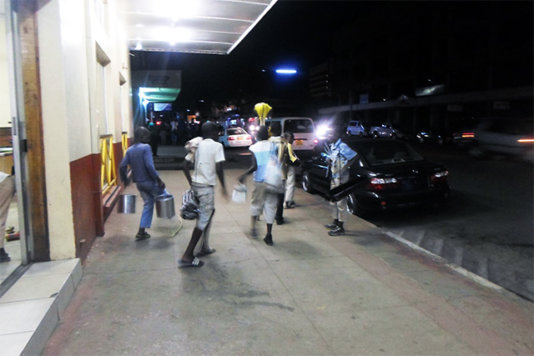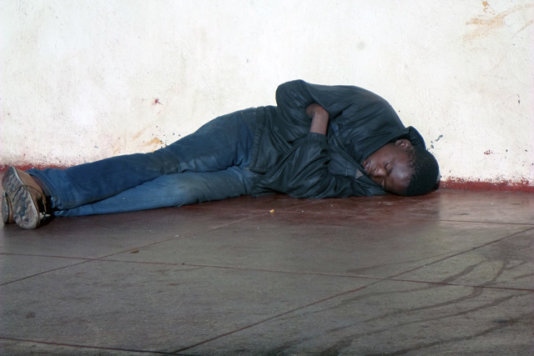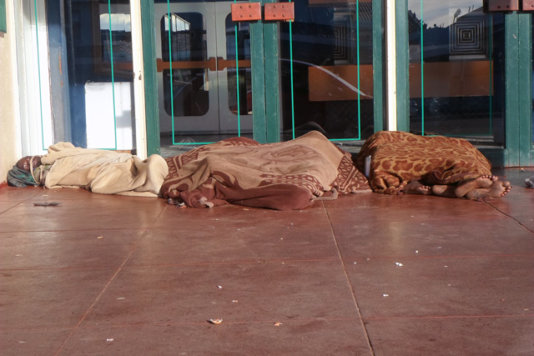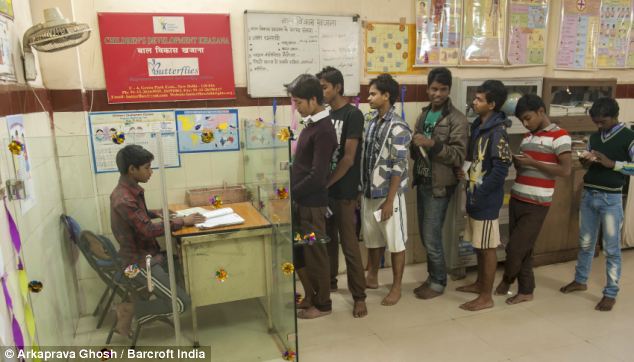- About
- Topics
- Picks
- Audio
- Story
- In-Depth
- Opinion
- News
- Donate
- Signup for our newsletterOur Editors' Best Picks.Send
Read, Debate: Engage.
| April 28, 2015 | |
|---|---|
| topic: | Child rights |
| tags: | #Africa, #Bulawayo, #Convention on the Rights of the Child, #human rights, #street children, #Zimbabwe |
| located: | Zimbabwe |
| by: | Henri-Count Evans |
Boys of ages ranging from seven to thirteen years old are the majority, whose only home is the street – a place where the children have to endure the bitter cold nights. They are barefoot, clad in their ragged clothes.
Lonely dreams
A street child was defined by the Inter-NGO in 1985 as, “any girl or boy who has not reached adulthood, for the street has become her or his habitual abode and or source of livelihood, and who is also inadequately protected, supervised or directed by responsible adults”.
“I have never known how it feels to be part of a family or to have parents and siblings who love me,” says Gibson Shoko, a thirteen year old street child from Bulawayo.
“The only family I know are my friends that I live with on the streets. I grew up in the streets, despised and ridiculed by most of those who see me toiling in the streets for food.”
The street children in Bulawayo come from different backgrounds. However, the majority of the street children reveal that they are orphans and had no one to take care of them after their parents died; hence they chose the street. For some, they ran away from their families citing cases of abuse, especially from members of the extended family.
Like any other child, these children have big dreams, but because of their social status, the street children have no access to basic education to pursue their dreams. As each day passes, their hopes disappear as the street has nothing attractive to offer to them.
“When I grow up, I want to be a doctor,” says Tariro Dube, a street child. “I want to go to school and pass, so that I will help all the children staying on the streets to become better people.”
In Zimbabwe, primary education is free for all under the constitution, but in reality the educational plight of the street children is hopeless as they continue with their street life, where classrooms are nowhere to be seen. They cannot afford to go to school as they have no money for the uniforms and books. More so, they cannot go to school straight from the street as their dirty state would invite judgement from their classmates.
Unprotected hopes
A survey of the main supermarkets in Bulawayo revealed that most street children have to go around begging for money from well-wishers. The few pennies they get are just enough to buy one sugar bun to feed on before they sleep and wait for another hopeless day.
The children hover around the supermarket entrances holding their begging cups asking for help from shoppers. The children follow everyone who they suspect of having some money, incessantly begging for help.
“We don’t have anyone who gives us food. We have two options if we want to eat...it’s either we beg from people on the streets especially at supermarkets or if we don’t get anything, we get our food from the bins,” says eight-year-old Earnest Mpofu.
The children suffer from several diseases because of the living conditions on the streets. They have no access to basic healthcare as they have nowhere to go for treatment of whatever disease they get. Their diet is composed of whatever they get.
“The big boys always take our money and food away,” laments Shepherd Tshuma, a ten-year-old street child from Bulawayo.
Street children are victims of both physical and emotional abuse, from the big boys who also live on the streets, but also from ordinary people. Girls are the most affected as they are abused sexually and have no legal recourse due to ignorance and lack of care from the authorities.
“Girls are being raped by other street kids and also ordinary people who take advantage of the vulnerable nature of the girls. Most cases of rape that are perpetrated against girls living on the streets go unreported,” says Kudzai Moyo, a social worker with Bantwana, a community-based child care organisation in Bulawayo.
“There is a higher rate of sexually transmitted infections among the street children. Unfortunately, there are no reliable statistics as the children rarely visit healthcare institutions due to the stigmatisation associated with being a street child and also the lack of information on their rights. Most cases of sexually transmitted diseases go unreported with children suffering deteriorating health and sometimes dying due to the health complications,” she explains.
Due to the stressful life on the street, some of the street children have now resorted to drug and substance abuse as a way of trying to escape their hopeless social reality. Through drug and substance abuse, some of the street children have become addicts and now turn to criminal activities in order to finance their new expensive drug life.
Zimbabwe is a signatory to the United Nations Convention on the Rights of the Child of 1989. The convention provides for the rights of the children. In its preamble the Convention notes that, “...the child, for the full and harmonious development of his or her personality, should grow up in a family environment, in an atmosphere of happiness, love and understanding”.
More than 15 years after this convention was signed, the street children of Bulawayo still wait with the hope that these words come true for them. What is left is a dream of a better life.
More information
A UNICEF Study on Street Children in Zimbabwe
Photos: sokwanele, Henri-Count Evens
By copying the embed code below, you agree to adhere to our republishing guidelines.



